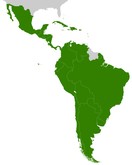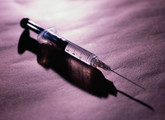Biosimilars/Research
Biosimilars in Southern European Hospital Markets: barriers and determinants of uptake
A recent publication by Barcina Lacosta et al. reflected on the need to understand market dynamics generated following biosimilars availability in Southern Europe, emphasizing that the competitive potential of biosimilars can be further deployed [1]. Considering the country-, setting-, and product-specific nature of biosimilar uptake patterns [2-5], the authors focused the analysis on hospital tumour necrosis factor alpha (TNF-α) inhibitor markets in Italy, Portugal and Spain [1].
Regulatory landscape for biosimilars in Latin America
The biosimilar regulatory situation in Latin America varies broadly among the different countries, even though Latin America is moving towards consolidating defined and standardised regulatory pathways for these products. This article gives a summary of the biosimilar regulatory status for the countries represented by members of the panel of experts of the American Health Foundation (AHF). The countries reviewed are Chile, Colombia, Ecuador, Guatemala and Peru [1].
Using infliximab economic evaluations in IBD to inform biosimilar access policies
According to a recent review, there has been limited economic evaluation of the varying prices of infliximab, despite its high cost. This limitation hinders the ability to understand the potential effects of introducing biosimilars. To ensure that patients with inflammatory bowel disease (IBD) continue to have access to their current medications, alternative pricing strategies and treatment access should be explored [1].
Biosimilars and other copies of biological products
The Commentary by Kurki P [1] is a response to the article of Klein et al. [2] that deals with copies of original biotherapeutics, biosimilars and non-biosimilars, marketed in 15 low- and middle-income countries (LMIC).
Bio-USER survey highlights the perception of retina specialists about biosimilars
The International Biosimilar Retina Study Group (Inter-BIOS Study Group) has recently published the results of the largest survey of biosimilar awareness amongst retina specialists practicing in the US and Europe [1]. The Survey was targeted at 200 retina specialists (100 from the US and 100 from Europe) and 112 retina specialists (55 from the US and 57 from Europe) responded. These results were presented at the 22nd Euretina Congress held in Hamburg, Germany [2], and also at the American Academy of Ophthalmology 2022 Annual Meeting held in Chicago, USA [3]. Following were the major findings of this survey:
Low biosimilar uptake in regions of low social and political trust
The adoption of biosimilars is lower in regions experiencing low social and governmental trust, finds a recent study that focused on uptake in provinces of Italy and Germany [1].
Study supports increased development of insulin biosimilars
Biosimilar insulins appear to be satisfactory in the treatment of both type 1 and type 2 diabetes and there is a strong case for increasing biosimilar insulin development, finds an editorial published in the Journal of Diabetes [1].
Malaysian hospital pharmacists’ perspective on and role in promoting biosimilars use
This survey study carried out by Mohd Sani N et al. aimed to evaluate Malaysian pharmacists’ perspectives of biosimilars and to determine factors associated with pharmacists successfully promoting their use.
Survey demonstrates US pharmacist biosimilar knowledge gaps
Previous studies of stakeholder perceptions have primarily focused on physicians. However, pharmacists are key stakeholders in the use and adoption of biosimilars. The study carried out by Stevenson et al. sought to gain insights from US pharmacists about their knowledge and approach to the use of biosimilars.
Best-value biological selection making: more to consider than only price
A recent paper by Barbier et al. described the criteria to be considered when selecting best-value biological, emphasizing that more factors should be taken into account than only the price, and the authors proposed an updated approach - a model, and guidelines to assist healthcare professionals to make transparent and evidence-based decisions [1].













